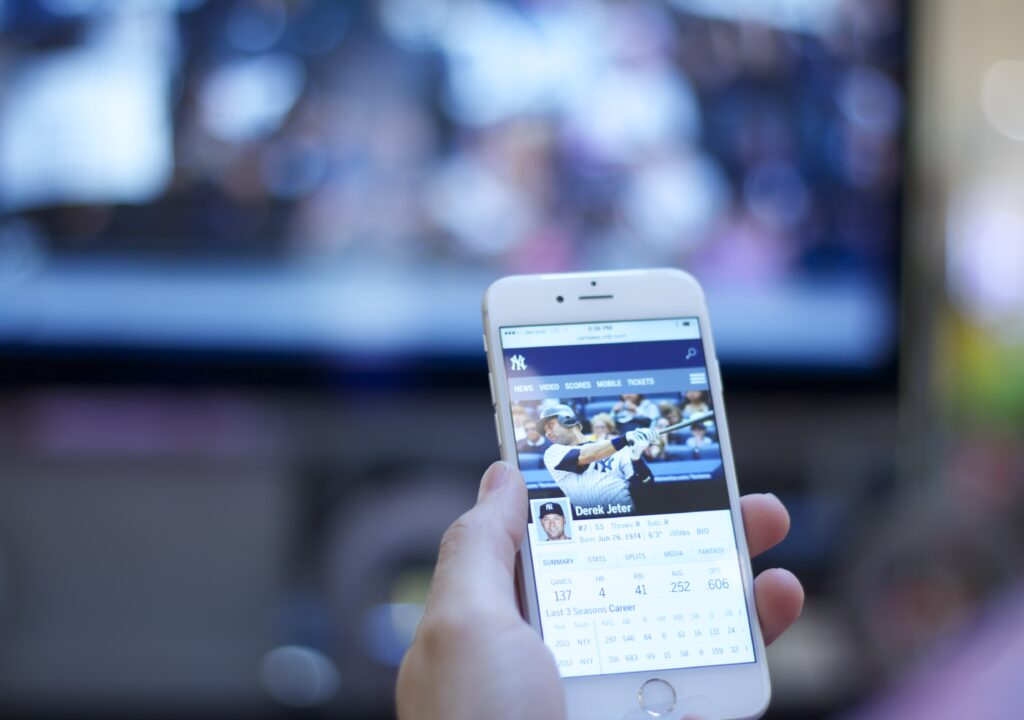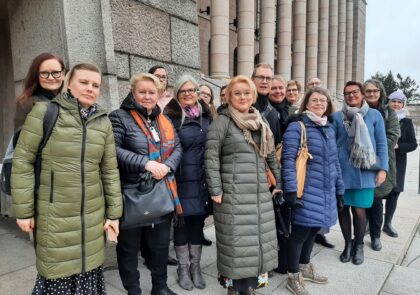
The negative impacts of using social media on different aspects of life are being discussed in public almost on a daily basis. Less attention is usually paid on the possible positive effects social media can have on people. The goal of this article is to identify possible ways social media could be exploited in improving the academic performance of individuals. Based on student interviews, some practical advice is given to both students and teachers of how social media use can be helpful in studies.
Authors: Hanh Nguyen & Antti Salopuro
Factors affecting the academic performance
In this article we follow Bell’s (2021) definition of term academic performance that is a numeric indicator of the scholastic achievements of student, measured in some form of testing (Bell 2021). The factors that that may affect the academic performance in general, can be divided in two major categories: internal factors, such as motivation, previous knowledge, aptitude and attitude, and external factors, such as family, environment, or guidance (Jabor Al-Muslimawi & Hamid 2019; Mahmoudi & Mahmoudi 2015). Another categorization would divide the factors into physiological, psychological, environmental, and teaching methodology factors (OpenLearnCreate 2017).
Whatever the categorization, only a part of the factors could in theory be affected by mechanisms within the reach of academic institutions. In addition to the obvious environmental and methodological factors, our hypothesis is that factors such as motivation, attitude and overall psychological wellbeing could be such that educators do have some influence on, and these are also factors that could be affected by the use of social media, both in good and bad.
Social media and education
The effects of social media usage in people’s behaviour and psychological state have been researched a lot and it is known that these impacts may be both positive and negative. For example, when people receive likes, comments, or reactions on their posts, their brains have similar reactions as when getting rewards or achievements. This effect can be so strong that it leads to an addiction similar to the effects of gambling or drug usage (King University Online 2019). Social media also offers a possibility of feeling social inclusion but also exclusion. Users that belong in a group can feel togetherness and being accepted and they gain happiness and joy through creating strong bonds with their friends and families as being accepted as part of a group activates the same regions of the brain as when receiving monetary rewards or experiencing pleasant tastes. Positive peer feedback can also have a strong influence on how they view themselves (Crone & Konjin 2018). Social media may also help to develop critical thinking and decision-making skills when users are faced with many different sources of information and need to consider their reliability (NSW Department of Education 2021).
For education, social media brings many advantages in supporting the students’ learning process and improves their academic results. Both students and teachers can use social networking sites as a tool to encourage cooperation. While doing assignments or projects, students can collaborate faster, building new relationships, boosting their confidence, soft skills and expand their network through many platforms. In e-learning, teachers also use social media channels to upload new lectures, discuss and assign homework for students (Koppa 2018). Students can communicate with their teachers and classmates outside school hours. This is important since research has shown that the more connected teachers and students are, the easier it is for students to learn things swiftly and at a higher level (Faizi, El Afia & Chiheb 2013).
Experiences of foreign students at LAB
To test the hypothesis, an interview of ten questions was designed with the participation of five respondents from LAB University of Applied Sciences. The goal was to find out what is the students own belief of how social media impact their academic work. The main results showed that social media has both positive and negative effects for the respondents with respect to studying. Students do use social media for entertainment and keeping in contact with their family and friends, but they also use it as a tool to support their studying like researching sources, communicating with teachers and friends, and learning with online platforms. (Nguyen 2021, 28-31.)
Some students confirmed that their studying process is significantly hampered because of spending hours on social media every day but being aware of this and setting limitations on social media time can be used to overcome these issues. Moreover, students also struggle when they need to distinguish fake news and false information, but this is also an excellent opportunity to help them develop their critical thinking and decision-making skills. (Nguyen 2021, 28-31.)
Suggestions
To support the positive impacts, teachers and students could increase the use of social media as a teaching and learning tool and take full advantage of different social media platforms. To prevent its harmful influence, students should control their time spent on social media because heavy usage of social media can lead to addiction and cause them to be distracted for long periods of time. There are different types of applications on mobile phones, tablets, and laptops that can be used to help students manage their time spent on social media.
Students should be kept aware of negative effects of using social media. We suggest that at the beginning of each new semester, when new students arrive, they could be educated on responsible use of social media and of how social media impacts their lives in different ways. They could also be told about methods used to control social media use. Tutors could be asked to help with this project. As Faizi, El Afia & Chiheb (2013) mentioned about a stronger connection between students and teachers resulting in better academic results, more teacher-student events could be organized. One such event could be a reverse classroom scenario where interested students hold a brief introductory course about a topic they know and care about for teachers on social media platforms.
References
Bell, M. 2021. Define Academic Performance. [Cited 1 Jun 2021]. Available at: https://www.scribd.com/document/62218299/Define-Academic-Performance
Crone, E.A. & Konjin, E.A. 2018. Media use and brain development during adolescence. [Cited 10 May 2021]. Available at: https://www.ncbi.nlm.nih.gov/pmc/articles/PMC5821838/
Faizi, R., El Afia, A. & Chiheb, R. 2013. Exploring the Potential Benefits of Using Social Media in Education. International Journal of Engineering Pedagogy (iJEP). Vol. 3 (4), 50-53. [Cited 1 Jun 2021]. Available at: https://online-journals.org/index.php/i-jep/article/view/2836/2821
Jabor Al-Muslimawi, I. & Hamid, A. 2019. External and Internal Factors Affecting Student’s Academic Performance. The Social Sciences, 14(4), pp. 155-168.
King University Online. 2019. The Psychology of Social Media. [Cited 10 May 2021]. Available at: https://online.king.edu/news/psychology-of-social-media/
Koppa, K. 2018. The good and bad of social media. [Cited 10 May 2021]. Available at: https://www.deccanherald.com/supplements/dh-education/good-and-bad-social-media-683498.html
Mahmoudi, S. & Mahmoudi, A. 2015. Internal and External Factors Affecting Learning English as a Foreign Language. International Journal of Language and Linguistics, 3(5), pp. 313-322.
Nguyen, M.H. 2021. The impact of social media on students’ lives: case: LAB University of Applied Sciences. Bachelor’s thesis, LAB University of Applied Sciences. Faculty of Business and Hospitality Management. Lahti. [Cited 15 Jun 2021]. Available at: http://urn.fi/URN:NBN:fi:amk-2021052410668
NSW Department of Education. 2021. What are the benefits of social media? [Cited 20 May 2021]. Available at: https://www.digitalcitizenship.nsw.edu.au/articles/what-are-the-benefits-of-social-media
OpenLearnCreate. 2017. Health Education, Advocacy and Community Mobilisation Module: 6. Principles of Learning. [Cited 28 May 2021]. Available at: https://www.open.edu/openlearncreate/mod/oucontent/view.php?id=163
Authors
Hanh Nguyen is a graduate Business Information Technology student of LAB University of Applied Sciences.
Antti Salopuro is a Senior Lecturer of Business Information Technology at LAB University of Applied Sciences.
Artikkelikuva: https://pxhere.com/fi/photo/930755 (CC0)
Julkaistu 17.6.2021
Reference to this article
Nguyen, H. & Salopuro, A. 2021. Social media in service of academic success. LAB Pro. [Cited and date of citation]. Available at: https://www.labopen.fi/lab-pro/social-media-in-service-of-academic-success/






